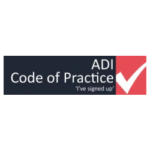'SHOW ME, TELL ME' ADI PART 2 TEST
During your ADI part 2 test, you will be asked 2 ‘show me and 3 tell me‘ vehicle safety questions by the examiner.
Have a look at the questions below and make sure you are fully prepared as you can fail the test in this area – key to success is preparation.
KWIK PASS Driver Training
- 75a Crawley Road, Luton, Bedfordshire, LU1 1HX
- 079 666 777 77
- info@kwikpass.org




